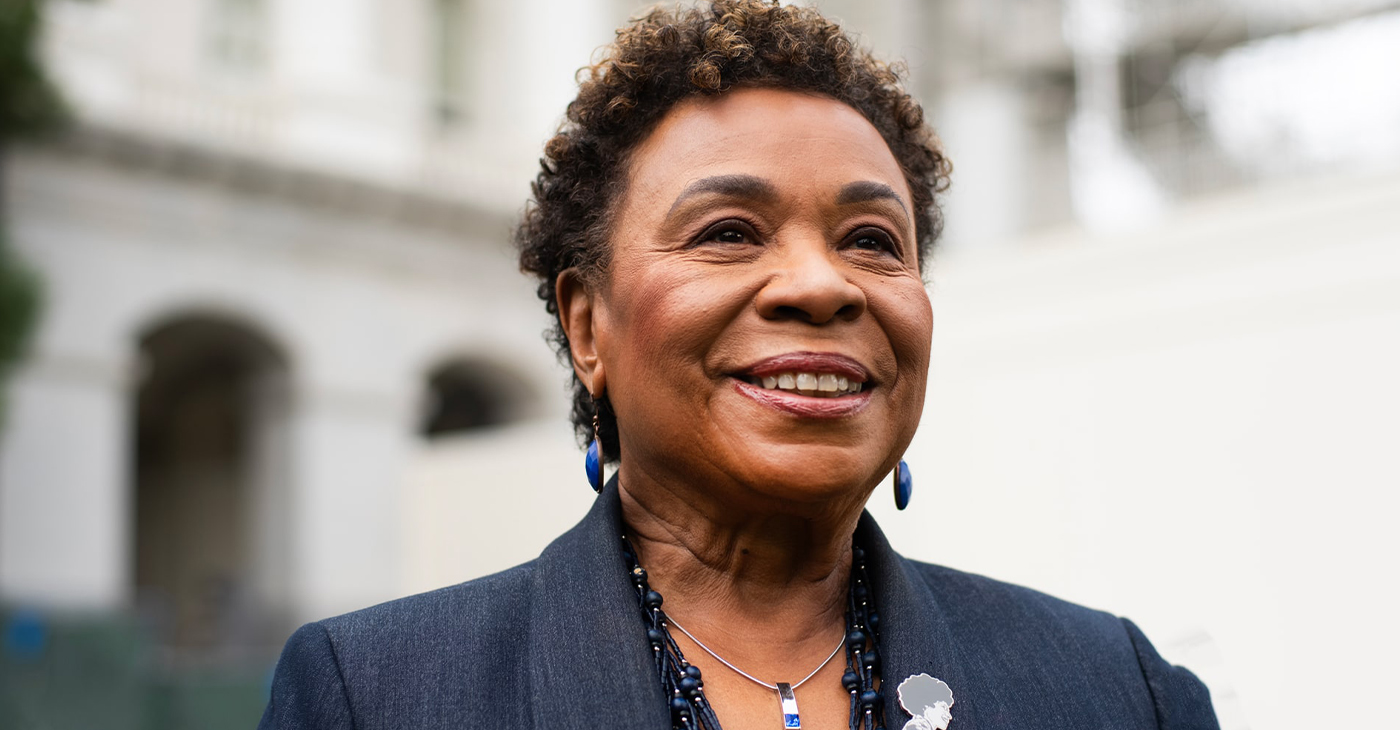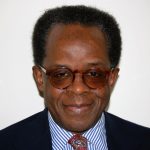Op-Ed
Baltimore and the Dynamic of Racial Déjà Vu
By Lee A. Daniels
NNPA Columnist
“It is one measure of the depth and insidiousness of American racism that the nation ignores the rage of the rejected – until it explodes … The wonder is that here have been so few riots, that [black Americans] generally are law-abiding in a world where the law itself has seemed an enemy.”
Those words weren’t written about the current crisis in Baltimore. They were written 50 years ago by the famed Black psychologist Kenneth B. Clark in his September 5, 1965 New York Times magazine article on the stunning Black uprising in the Watts neighborhood of Los Angeles.
Clark’s article about what was then seen as a shocking event underscores this about the present: It seems like déjà vu all over again, doesn’t it?
Are we talking about what the “crisis” in Baltimore has revealed? Or, the crisis that was revealed a decade ago in the aftermath of Hurricane Katrina? Or, the crisis revealed by the Watts rebellion in 1965? Or, that of Newark and Detroit and scores of other cities in 1967? And dozens more in 1968 after the assassination of Dr. Martin Luther King, Jr.?
Are we talking about the culture of racist exploitation and violence that pervades the police department in Baltimore? Or, the police department in New Orleans? Or, Los Angeles? Or, Miami? Or, Cleveland? Or, Ferguson, Mo.? Or …. name a city or town.
Are we talking about our alarm at the sense of dispossession among Baltimore’s Black poor that Freddie Gray’s death in police custody exposed? Or, among the Black poor in New Orleans in the aftermath of Hurricane Katrina? Or, in the wake of the riots that swept parts of Los Angeles a quarter-century ago after the first Rodney King trial? Or, yes, back to Watts in 1965, and Harlem the year before that?
What the crisis in Baltimore has exposed once again is the continual “racial crisis loop” of American society. It’s that repeating dynamic that gives the sense of having seen this entire scenario before.
Of course we have – because it’s rooted in the age-old struggle over whether Black Americans should actually be allowed to exercise the rights of American citizens. For most of the four-century existence of Blacks and Whites on these shores, the answer to that question was: No.
The Civil War supposedly settled the issue of whether America would exist “half-slave and half-free.” But, as quickly became all too clear, Black Americans weren’t going to be allowed to exercise their rights of citizenship. In fact, precisely because they “proved” again and again they were more than equal to the responsibilities of citizenship, Blacks’ rights were under challenge, in the North as well as the South, all the way into the middle of the 20th century.
The civil rights victories of the 1960s and Blacks’ success in taking advantage of them didn’t end the dynamic of anti-Black exclusion. Instead, it provoked, along with the opening of mainstream America to Blacks, another round of efforts to deny Blacks their American rights. That’s why their ultimate political success – President Obama’s election and re-election – has provoked a fierce racist reaction championed by the Republican Party.
In fact, it’s vitally important to juxtapose both the personal and political reaction against Obama, on the one hand, and, on the other, both the current caught-on-video and the deeply researched revelations of police violence against Black citizens in Baltimore and elsewhere. For they’re among the voluminous evidence that reveal the fortunes of both well-to-do Blacks and poor Blacks are under siege. The institutional and political resources devoted to creating and maintaining a sizeable class of poor Black people whether in populous urban centers like Baltimore or small cities and towns like Ferguson become obvious at moments like this.
But we also shouldn’t forget that the striking success of Blacks playing “smart politics” with their vote – that fundamental marker of citizenship – is what provoked the Supreme Court conservative majority’s to strike down the most important clause of the Voting Rights Act of 1965 in order to encourage efforts in Republican-dominated state legislatures to block Black Americans’ (and other Democratic-leaning voting blocs) right to vote.
That’s another example of why today’s Blacks (and their allies) are right to have a sense of racial déjà vu at this moment – and why they’ve got to use that as inspiration to forge a successful response for the present and future.
Lee A. Daniels is a longtime journalist based in New York City. His essay, “Martin Luther King, Jr.: The Great Provocateur,” appears in Africa’s Peacemakers: Nobel Peace Laureates of African Descent (2014), published by Zed Books. His new collection of columns, Race Forward: Facing America’s Racial Divide in 2014, is available at www.amazon.com.
###
Activism
OPINION: Your Voice and Vote Impact the Quality of Your Health Care
One of the most dangerous developments we’re seeing now? Deep federal cuts are being proposed to Medicaid, the life-saving health insurance program that covers nearly 80 million lower-income individuals nationwide. That is approximately 15 million Californians and about 1 million of the state’s nearly 3 million Black Californians who are at risk of losing their healthcare.

By Rhonda M. Smith, Special to California Black Media Partners
Shortly after last year’s election, I hopped into a Lyft and struck up a conversation with the driver. As we talked, the topic inevitably turned to politics. He confidently told me that he didn’t vote — not because he supported Donald Trump, but because he didn’t like Kamala Harris’ résumé. When I asked what exactly he didn’t like, he couldn’t specifically articulate his dislike or point to anything specific. In his words, he “just didn’t like her résumé.”
That moment really hit hard for me. As a Black woman, I’ve lived through enough election cycles to recognize how often uncertainty, misinformation, or political apathy keep people from voting, especially Black voters whose voices are historically left out of the conversation and whose health, economic security, and opportunities are directly impacted by the individual elected to office, and the legislative branches and political parties that push forth their agenda.
That conversation with the Lyft driver reflects a troubling surge in fear-driven politics across our country. We’ve seen White House executive orders gut federal programs meant to help our most vulnerable populations and policies that systematically exclude or harm Black and underserved communities.
One of the most dangerous developments we’re seeing now? Deep federal cuts are being proposed to Medicaid, the life-saving health insurance program that covers nearly 80 million lower-income individuals nationwide. That is approximately 15 million Californians and about 1 million of the state’s nearly 3 million Black Californians who are at risk of losing their healthcare.
Medicaid, called Medi-Cal in California, doesn’t just cover care. It protects individuals and families from medical debt, keeps rural hospitals open, creates jobs, and helps our communities thrive. Simply put; Medicaid is a lifeline for 1 in 5 Black Americans. For many, it’s the only thing standing between them and a medical emergency they can’t afford, especially with the skyrocketing costs of health care. The proposed cuts mean up to 7.2 million Black Americans could lose their healthcare coverage, making it harder for them to receive timely, life-saving care. Cuts to Medicaid would also result in fewer prenatal visits, delayed cancer screenings, unfilled prescriptions, and closures of community clinics. When healthcare is inaccessible or unaffordable, it doesn’t just harm individuals, it weakens entire communities and widens inequities.
The reality is Black Americans already face disproportionately higher rates of poorer health outcomes. Our life expectancy is nearly five years shorter in comparison to White Americans. Black pregnant people are 3.6 times more likely to die during pregnancy or postpartum than their white counterparts.
These policies don’t happen in a vacuum. They are determined by who holds power and who shows up to vote. Showing up amplifies our voices. Taking action and exercising our right to vote is how we express our power.
I urge you to start today. Call your representatives, on both sides of the aisle, and demand they protect Medicaid (Medi-Cal), the Affordable Care Act (Covered CA), and access to food assistance programs, maternal health resources, mental health services, and protect our basic freedoms and human rights. Stay informed, talk to your neighbors and register to vote.
About the Author
Rhonda M. Smith is the Executive Director of the California Black Health Network, a statewide nonprofit dedicated to advancing health equity for all Black Californians.
Activism
OPINION: Supreme Court Case Highlights Clash Between Parental Rights and Progressive Indoctrination
At the center of this controversy are some parents from Montgomery County in Maryland, who assert a fundamental principle: the right to shield their children from exposure to sexual content that is inappropriate for their age, while also steering their moral and ethical upbringing in alignment with their faith. The local school board decided to introduce a curriculum that includes LGBTQ+ themes — often embracing controversial discussions of human sexuality and gender identity.

By Craig J. DeLuz, Special to California Black Media Partners
In America’s schools, the tension between parental rights and learning curricula has created a contentious battlefield.
In this debate, it is essential to recognize that parents are, first and foremost, their children’s primary educators. When they send their children to school — public or private — they do not surrender their rights or responsibilities. Yet, the education establishment has been increasingly encroaching on this vital paradigm.
A case recently argued before the Supreme Court regarding Maryland parents’ rights to opt out of lessons that infringe upon their religious beliefs epitomizes this growing conflict. This case, Mahmoud v. Taylor, is not simply about retreating from progressive educational mandates. It is fundamentally a defense of First Amendment rights, a defense of parents’ rights to be parents.
At the center of this controversy are some parents from Montgomery County in Maryland, who assert a fundamental principle: the right to shield their children from exposure to sexual content that is inappropriate for their age, while also steering their moral and ethical upbringing in alignment with their faith. The local school board decided to introduce a curriculum that includes LGBTQ+ themes, often embracing controversial discussions of human sexuality and gender identity. The parents argue that the subject matter is age-inappropriate, and the school board does not give parents the option to withdraw their children when those lessons are taught.
This case raises profound questions about the role of public education in a democratic society. In their fervent quest for inclusivity, some educators seem to have overlooked an essential truth: that the promotion of inclusivity should never infringe upon parental rights and the deeply held convictions that guide families of different faith backgrounds.
This matter goes well beyond mere exposure. It veers into indoctrination when children are repeatedly confronted with concepts that clash with their family values.
“I don’t think anybody can read that and say: well, this is just telling children that there are occasions when men marry other men,” noted Justice Samuel Alito. “It has a clear moral message, and it may be a good message. It’s just a message that a lot of religious people disagree with.”
Justice Amy Coney Barrett raised a crucial point, noting that it is one thing to merely expose students to diverse ideas; it is quite another to present certain viewpoints as indisputable truths. By framing an ideology with the certainty of “this is the right view of the world,” educators risk indoctrination rather than enlightenment. This distinction is not merely academic; it speaks to the very essence of cultivating a truly informed citizenry.
Even Justice Elena Kagan expressed concern regarding the exposure of young children to certain materials in Montgomery County.
“I, too, was struck by these young kids’ picture books and, on matters concerning sexuality, I suspect there are a lot of non-religious parents who weren’t all that thrilled about this,” she said.
Justice John Roberts aptly questioned the practicality of expecting young children to compartmentalize their beliefs in the classroom.
“It is unreasonable to expect five-year-olds, still forming their worldviews, to reconcile lessons that conflict fundamentally with the teachings they receive at home,” he said.
As was noted in my previous commentary, “The Hidden Truth In The Battle Over Books In American Schools”, what lies at the heart of these debates is a moral disconnect between the values held by the majority of Americans and those promoted by the educational establishment. While the majority rightly argue that material containing controversial content of a sexual nature should have no place in our children’s classrooms, the education establishment continues to tout the necessity of exposing children to such content under the guise of inclusivity. This disregards the legitimate values held by the wider community.
Highlighted in this case that is before the Supreme Court is a crucial truth: parents must resolutely maintain their right to direct their children’s education, according to their values. This struggle is not simply a skirmish; it reflects a broader movement aimed at reshaping education by privileging a state-sanctioned narrative while marginalizing dissenting voices.
It is imperative that we assert, without hesitation, that parents are — and must remain — the primary educators of their children.
When parents enroll a child in a school, it should in no way be interpreted as a relinquishment of parental authority or the moral guidance essential to their upbringing. We must stand firm in defending parental rights against the encroaching ideologies of the education establishment.
About the Author
Craig J. DeLuz has almost 30 years of experience in public policy and advocacy. He has served as a member of The Robla School District Board of Trustees for over 20 years. He also currently hosts a daily news and commentary show called “The RUNDOWN.” You can follow him on X at @CraigDeLuz.
Activism
Oakland Post Endorses Barbara Lee
Barbara Lee will be able to unify the city around Oakland’s critical budget and financial issues, since she will walk into the mayor’s office with the support of a super majority of seven city council members — enabling her to achieve much-needed consensus on moving Oakland into a successful future.

As we end the celebration of Women’s History Month in Oakland, we endorse Barbara Lee, a woman of demonstrated historical significance. In our opinion, she has the best chance of uniting the city and achieving our needs for affordable housing, public safety, and fiscal accountability.
As a former small business owner, Barbara Lee understands how to apply tools needed to revitalize Oakland’s downtown, uptown, and neighborhood businesses.
Barbara Lee will be able to unify the city around Oakland’s critical budget and financial issues, since she will walk into the mayor’s office with the support of a super majority of seven city council members — enabling her to achieve much-needed consensus on moving Oakland into a successful future.
It is notable that many of those who fought politically on both sides of the recent recall election battles have now laid down their weapons and become brothers and sisters in support of Barbara Lee. The Oakland Post is pleased to join them.
-

 Activism4 weeks ago
Activism4 weeks agoOakland Post: Week of May 7 – 13, 2025
-

 Activism3 weeks ago
Activism3 weeks agoAfter Two Decades, Oakland Unified Will Finally Regain Local Control
-

 Activism3 weeks ago
Activism3 weeks agoOakland Post: Week of May 14 – 20, 2025
-

 Activism3 weeks ago
Activism3 weeks agoNew Oakland Moving Forward
-

 Alameda County3 weeks ago
Alameda County3 weeks agoOakland Begins Month-Long Closure on Largest Homeless Encampment
-

 Barbara Lee3 weeks ago
Barbara Lee3 weeks agoWNBA’s Golden State Valkyries Kick Off Season with Community Programs in Oakland
-

 Activism3 weeks ago
Activism3 weeks agoEast Bay Community Foundation’s New Grants Give Oakland’s Small Businesses a Boost
-

 Bay Area3 weeks ago
Bay Area3 weeks agoChevron Richmond Installs Baker Hughes Flare.IQ, Real-time Flare Monitoring, Control and Reduction System



















































